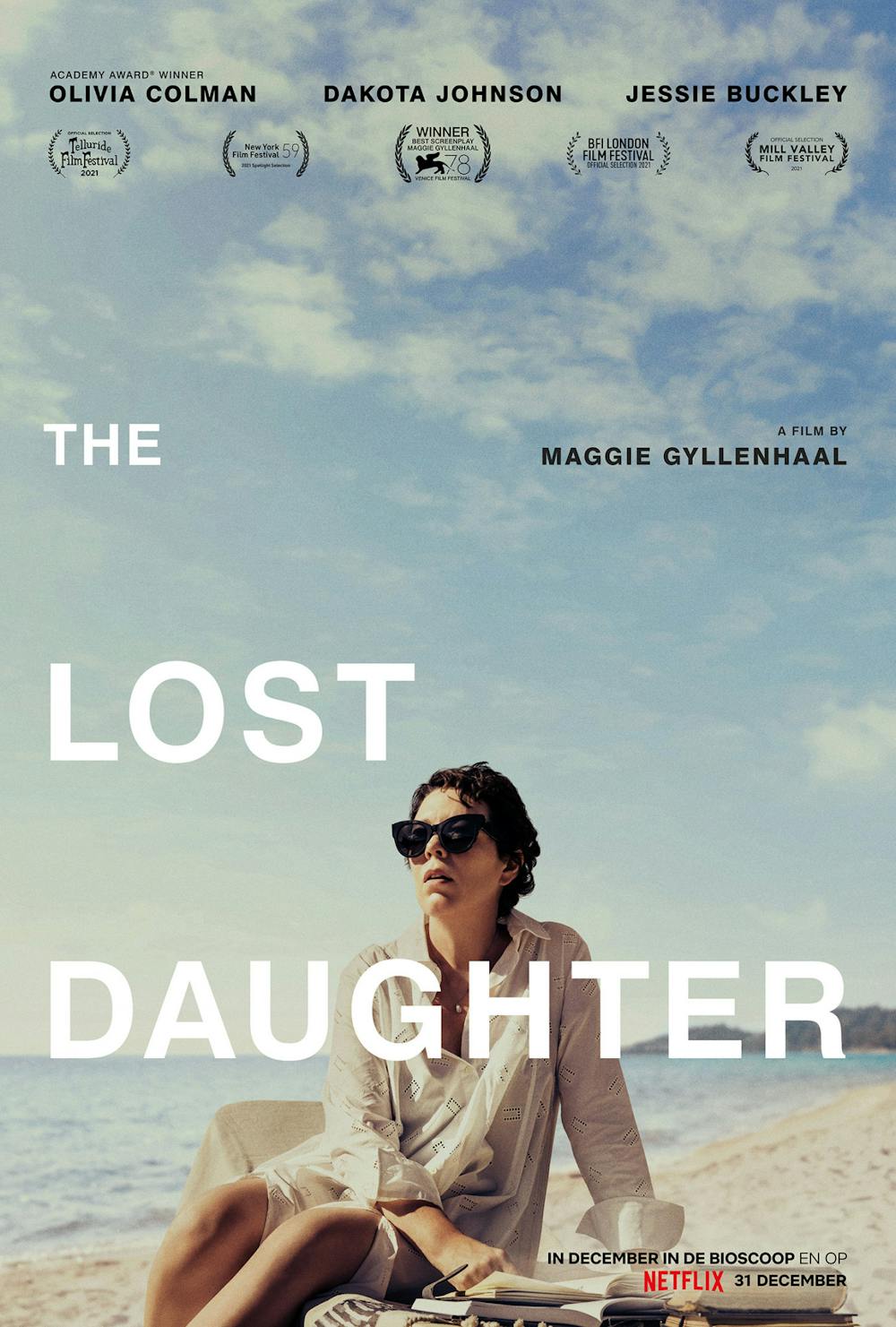By Lea Pichardo
Staff Writer
Before watching Maggie Gyllenhaal’s directorial debut, “The Lost Daughter,” I didn’t expect a story about a woman’s struggles with motherhood and the subsequent loss of her identity to be told with so much kindness and empathy.
I suppose that after seeing the “The Lost Daughter” trailer for the first time, I expected it to be a psychological thriller as opposed to a psychological drama (I am unsure if there is a distinction between the two terms, but to me, one genre is significantly darker than the other).
There was something about the way the story was presented in the trailer that made the film feel like a psychological thriller. The trailer had a notable and powerful sense of dread and unease that felt tangible. Like a twisted swarm of knots that were impossible to untangle or a snake that had somehow wrapped itself around my body without my knowledge and was now cutting off my air supply, watching with a soft grin as I squirmed. It is a dark image to paint, perhaps, but startlingly accurate nonetheless. Watching the film for the first time felt like watching someone let loose a deafening scream in a vacuum. It was incredibly loud and extremely quiet at the same time. To present yet another analogy, the film felt like a scar. A wound, not necessarily healed fully, but a wound that doesn’t have to be healed. A wound that is free to just be. Pain that can just be felt and held and cradled and never forgotten, but not so heavy and crushing that it becomes impossible to move forward or live a truly happy life.
Olivia Coleman portrays the lead, Leda, as a woman in pain who cannot hide that she is in pain and does not attempt to escape the pain even as it consumes her is nothing short of masterful. There’s something so very human about Leda. Even if her story is not one you can personally relate to, viewers may find themselves drawn to her and her story regardless.
“The Lost Daughter” is very unique in that it is told mostly through the use of flashbacks where viewers get to see Leda as a young mother, raising her two young daughters, Bianca and Martha. You see both good memories and bad ones. The ways in which her daughters add light and meaning to her life. The ways in which she slowly begins to lose pieces of herself because her time is no longer her own, and her life’s work — the career she spent so much of her time working towards — isn’t valued. She is so much more than a mother and a wife; she is an intelligent and wildly passionate individual who has so much to give to the world. Unfortunately, she ends up feeling trapped and does everything in her power to find the young woman she once was and the life she once had.
The consequences of attempting to do so stay with her for the rest of her life, but the film doesn’t make her a villain. She is portrayed as someone with the capacity to both love her kids very deeply and yearn for a life when she did not have them. She is not confined to the labels of “good mother” and “bad mother.” She just is.
Even though throughout the movie viewers may want her to remain a devoted mother to her children, at the same time they are able to understand her yearning for freedom and simplicity. At certain moments, her right to happiness, true happiness, almost seems to overwhelm and take precedence over everything else. I found this to be incredibly fascinating.
Also, I loved the dreamlike quality of the film and the way the entire story was told exclusively from Leda’s point of view. It felt suffocating at times, yes. I oftentimes had the strongest desire to take a step back and distance myself from her. She clung to me like a shadow, and her nearness made it very difficult to see what was going on clearly. But, in the end, experiencing life through her made the emotions conveyed in the film much more intense, and in the end I could see how it was a deliberate choice. Here was a woman who wasn’t really listened to and was rarely truly seen. However, in the end, she was given the chance to tell her own story, the way she wanted to tell it. She got to control how much the viewers knew, and she got to decide when we would be told the whole story. Her viewpoint mattered. She mattered. Perhaps not to other characters on the screen, but to the viewers? Yes, very much so.
In the end, what makes the film brilliant, as opposed to just merely great or satisfactory, is it’s commitment to being accepted for what it is. In other words, the film demands that we, the viewers, make room for Leda’s darkness and just accept it.
Now wouldn’t it be interesting if in accepting and validating Leda’s emotions, we learned to make room for our own?







